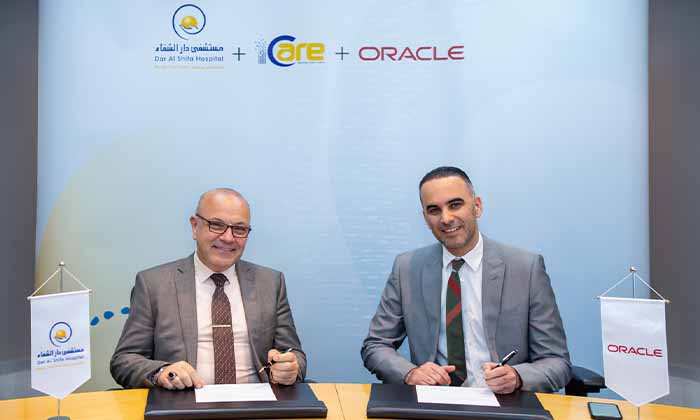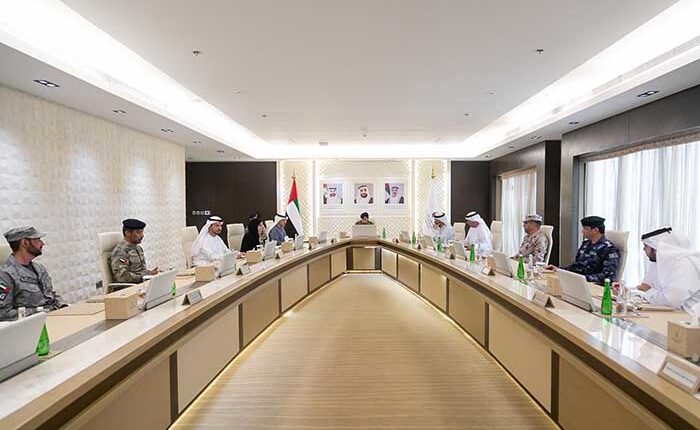The UAE Ministry of Finance held a public awareness session on Critical Corporate Tax Decisions today in Sharjah to explain and discuss the key features and implications of the most important Cabinet and Ministerial Decisions relating to the implementation of the Corporate Tax Law.
The session was organized in collaboration with Sharjah Chambers of Commerce and Industry and saw attendance of leadership representatives from the Ministry of Finance; the Federal Tax Authority and Sharjah Chambers of Commerce and Industry; as well as more than 200 participants from UAE businesses and companies, legal and tax consultants, and financial professionals.
His Excellency, Younis Haji Al Khoori, Undersecretary of the Ministry of Finance, said: “The UAE Ministry of Finance recently issued several decisions on various aspects of the Corporate Tax Law which entered into effect from 1 June 2023. Today we have focused on providing clarifications and guidance to businesses on the most critical decisions such as small business relief, tax groups, interest capping rules and many more. The decisions reveal the UAE's desire to promote accounting transparency, ease the compliance burden for small businesses and start-ups, reinforcing anti-abuse rules, avoiding double taxation, and determining taxable income. This showcases the UAE's commitment to ensuring the new tax underpins an enabling business environment that promotes economic growth while cementing the country's position as a leading global trade and investment hub."
For his part, His Excellency Mohamed Ahmed Amin Al Awadi, Director-General of the Sharjah Chamber of Commerce and Industry, asserted that organising this awareness session, in collaboration with the Ministry of Finance, builds on the robust partnership between the two entities, which includes implementing programmes and initiatives that serve the business community and the private sector. “Corporate Tax is a significant step forward for the UAE, and one that is poised to bring tremendous benefits in the future and positively impact the national economy as a whole,” H.E. added. “It will provide additional tax revenues to be reinvested in the comprehensive development effort taking place across the country, supporting the achievement of the UAE’s ambitious strategic goals, and accelerating growth. The UAE Corporate Tax Law provides for a highly competitive tax system, where the tax rate is one of the most competitive in the world, further enhancing the country’s position on the global business and investment map.”
The session, which was held at Sharjah Chamber of Commerce and Industry, featured a presentation by Shabana Begum, Executive Director of Tax Policy Sector at the Ministry of Finance, who gave an overview of the Corporate Tax regime and discussed the most important decisions and their potential impact on businesses in the UAE. These included Small Business Relief designed to support start-ups and other small or micro businesses to be treated as having no Taxable Income during the relevant Tax Period; conditions for forming a Tax Group which allows businesses to file a single Tax Return for all group entities on a consolidated basis; and Participation Exemption which aims to prevent domestic and international double taxation.
Other decisions discussed during the presentation include Business Restructuring relief which allows business mergers and certain other restructuring transactions to take place without triggering a Corporate Tax liability, and the General Interest Deduction Limitation Rule designed to prevent multinational groups from utilizing third party debt to shift profits between jurisdictions. In addition, Begum highlighted the Transfer Pricing Rules decision which outlines the regulations that must be followed when it comes to maintaining transfer pricing records as well as other key decisions on accounting standards, determining taxable income, transitional rules, taxable businesses and business activities of individuals; and the situations that give rise to Permanent Establishment for the non-resident person.
The session included a panel discussion to shed light on the Cabinet and Ministerial Decisions. It featured speakers from the Ministry of Finance including Fatima AlSheikh, Director of Tax Policies and Legislation, Rasha Hajj Hussein, Tax Policies and Legislation Expert, and Chris Searing, Tax Policy Sector Specialist. The panel discussion was followed by a question-and-answer session to respond to the queries and clarifications of the audience.
This open session part of the Ministry of Finance's Corporate Tax Public Awareness Programme which was launched following the issuing of the Corporate Tax Law in December 2022. The aim is to support the business community in understanding the key features and general framework of the law and how it applies to various sectors and taxpayer segments.
The Corporate Tax Law entered into effect on 1 June 2023, subjecting businesses with profits exceeding AED 375,000 to a 9% tax rate from the beginning of their first financial year that starts on or after 1 June 2023. In the next phase, the Federal Tax Authority will be responsible for the administration, collection and enforcement of the Corporate Tax Law.
All Cabinet and Ministerial Decisions and more information relating to Corporate Tax can be viewed on the Ministry of Finance's website: www.mof.gov.ae.
-End-















